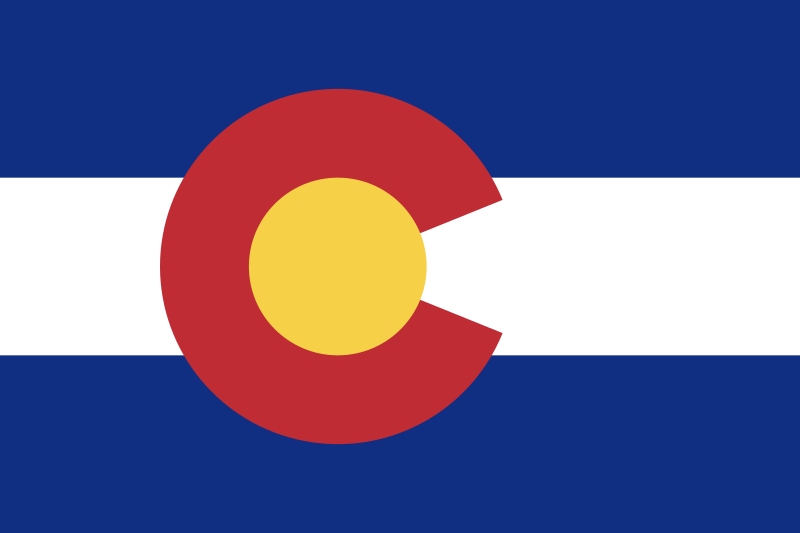Voters in Colorado will decide on a citizen-initiated ballot measure on Nov. 5, 2024, that would cap state property tax revenue at 4% over the total revenue collected in the preceding year. The initiative would require statewide voter approval to allow local governments to retain property tax revenue exceeding the 4% growth limit.
Any measures referred to the ballot seeking voter approval to retain property tax revenue would read, “Shall property tax revenue be increased by [total projected increase over the preceding year] allowing government to retain and spend property tax revenue above the 4% annual limit on property tax increases for [dates X to X]?”
On Oct. 6, 2023, the Colorado secretary of state announced proponents had submitted 172,231 valid signatures and that the initiative would appear on the 2024 ballot. To qualify for the ballot, 124,238 valid signatures were required. Proponents submitted 227,357 raw signatures gathered over 57 days.
The initiative was sponsored by Advance Colorado Institute. Michael Fields, president of the Advance Colorado Institute, referenced Nov. 2023’s Proposition HH. He said, “It remains clear that Coloradans across the state want real property tax reform. Proposition HH isn’t the answer because it would end our TABOR refunds, but [this initiative] gives citizens a real solution to cap property tax increases permanently without taking any additional money out of their pockets or giving government a blank check.”
On Nov. 7, 2023, Colorado voters will decide on Proposition HH, which would reduce property tax rates and allow the state to retain and spend revenues that would otherwise be refunded to residents under TABOR. Proposition HH would allocate this revenue to local governments for the purpose of making up lost tax revenues from the property tax rate reduction. Proposition HH would create a limit on local government property tax revenue unless the district adopts a resolution or ordinance to exceed the limit. The measure would make other changes to property tax law and create a Proposition HH Cap on state revenue.
Property Tax Relief Now, the campaign supporting Proposition HH, said the 2024 initiative “would place a hard property tax cap – with no accounting for population growth or the diverse needs of different regions of the state,” and “would have absolutely devastating impacts to our state, forcing schools to close, fire districts to eliminate services, and the state budget to be further and more aggressively constrained than it already is.”
In 2021, the state legislature passed a bill that temporarily lowered tax rates for various properties in 2022 and 2023. In 2022, another bill was passed, further adjusting rates for 2023 and 2024. The residential property assessment rate was 6.765% in 2023. Under current law, the rates were set to be 6.976% for single-family and 6.8% for multifamily homes in 2024 and 7.15% in 2025.
Under Proposition HH, rates would be reduced to 6.7%, and the valuation adjustment (currently $15,000) would be increased to $50,000 in 2023 and $40,000 in 2024 and 2025.
Colorado has a Taxpayer’s Bill of Rights, known as TABOR, which limits state revenue and requires voter approval for all new taxes, tax rate increases, extensions of expiring taxes, mill levy increases, valuation for property assessment increases, or tax policy changes resulting in increased tax revenue. TABOR limits the amount of money the state of Colorado can take in and spend. It limits the annual increase for some state revenue to inflation plus the percentage change in state population. Any money collected above this limit is refunded to taxpayers unless the voters allow the state to spend it.
Property tax revenue in Colorado is collected by local governments and funds county government, public schools, junior colleges, and special districts. Colorado has not had a statewide property tax since 1964. The state sets assessment rates and local governments set the tax rate (mills) that are levied on the assessed value of the property. For 2025, the statewide average levy was forecast to be around 85 mills. For a $500,000 home, for example, the 2025 assessment rate of 7.15% means that $35,750 is taxable. The local government’s tax rate would apply to the $35,750. For example, a tax rate of 85 mills would mean that $3,038.75 would be owed for property taxes on the house.
Last year, the Colorado Legislative Council Staff projected that assessed values of properties will increase by 4.7% in 2025. If the 2024 initiative is approved, a question asking voters to retain revenue above the 4% cap could occur in 2025. If voters do not approve such a measure, property tax revenues would decrease by an estimated $115 million.
Additional reading:
Colorado Proposition HH, Property Tax Changes and Revenue Change Measure (2023)


